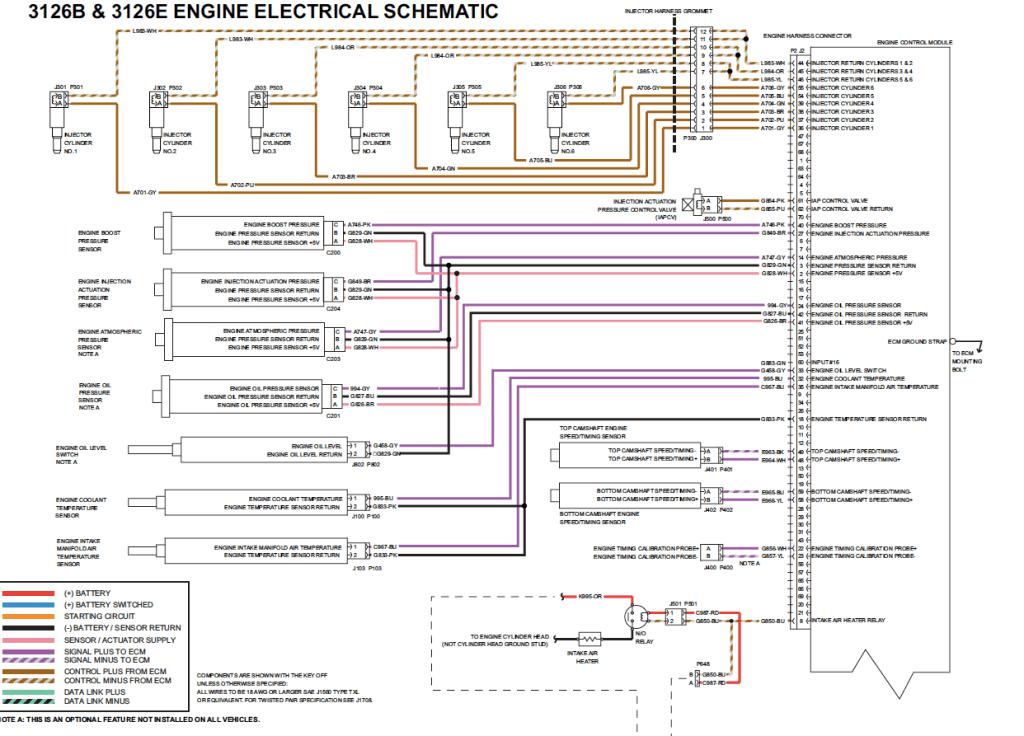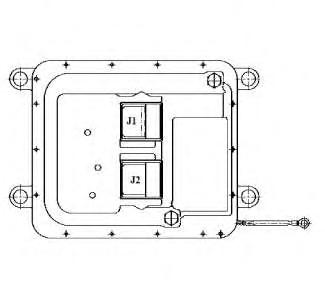For orders and details please call 726-999-0231
The How, Why & What of ECM

There’s a huge gap in knowledge on Engine Control Modules—even a basic Google search directs you to diluted or misleading articles that don’t do justice to the complexity of ECMs. There’s even less information about how heavy-duty diesel ECMs works and how they differ from those installed in everyday consumer cars.
These shortcomings in existing knowledge make it a hassle for heavy-duty commercial vehicle owners to make the best decisions regarding their trucks and construction vehicles.
This piece will give you a detailed account of what an ECM is, how it works, how much repairs cost, and other crucial bits of information on Engine Control Modules.
What is an Engine Control Module?
The engine control module is a piece of hardware that controls vehicle performance. Whether you’re looking at consumer cars or Caterpillar diesel trucks, the ECM serves as the mediator between the signals you send to the car and the car’s internal mechanisms.
The information from the pedals, starter, and sometimes even the external environment is translated into electrical signals to be translated into appropriate responses to ensure optimal performance.
From the minute that you start your automobile, the ECM is continuously working to process information and signaling to the rest of the car’s components of what they ought to do. Pressing on the throttle makes the ECM force more fuel and air into the engine, and some trucks are even built with automatic stabilizers that distribute torque to improve handling.
How Does the ECM do Its Job?
By itself, the ECM is no different than any other computer that we use in our everyday life—the software installed in the ECM makes all the difference. The ECM is connected to various sensors in your car that detect changes across a wide range of internal mechanisms—the most common of these include:
- Fuel Injectors
- Spark plugs
- Idle speed regulators
- Check engine lights
- Ignition systems
- Data transmissions between the camshaft and car transmission
Each of these components, including the car’s data input mechanisms and the ECM itself, form a feedback loop that sends information continuously while it’s working. You manipulate the car’s controls to send signals to the ECM, which sends them to the various car parts to achieve your desired effects.

What Does an ECM Achieve?
Before we had computers in the car, there was no way for us to control fuel emissions, fuel economy, and very little control over the car’s functioning. With the introduction of ECMs, people were able to exert greater control over their vehicles to make them faster, less costly, and helped clamp down on fuel emissions to make them eco-friendly.
The Importance of ECMs for Heavy-duty Vehicles

Construction vehicles and other heavy-duty automobiles are far more costly and environmentally hazardous than your run-of-the-mill consumer car. There are a lot of regulations controlling the ownership of these vehicles, and there are a lot of cost concerns that owners need to think about.
Installing an ECM can resolve these concerns the very minute that these vehicles are manufactured. The ECM is tuned to operate according to regulations and takes a lot of hassle away from the owner. Of particular interest to fleet owners is fuel efficiency that an ECM offers—using really precise measurements to shave off inefficiencies—Caterpillar has a chart on this.
So whether you’re trying to tackle internal cost inefficiencies or struggling to meet government regulations, your truck ECMs are going to help you. It’s also for this reason that ECMs are considered a mechanical revolution that has significantly improved commercial vehicle performance.
How much Do ECMs Cost?

ECMs are pretty expensive, which is why we’ve always emphasized that you consistently monitor them for the slightest malfunctions. Brand new ECMs cost above $1500 depending on the manufacturer and the vehicle that you need to install them in.
If you want to get them repaired, that depends on how much work is needed—do you want your ECM tuned or completely reprogrammed?—only your service provider can tell you how much they charge.
Sometimes, these prices even go over the $1500 mark, which often makes replacements preferable over repairs. Make sure that you go to trained technicians for repairs, though, because tampering with the ECM can void the warranty altogether.
If you’re looking for ECM repairs and replacements, you should get in touch with the technicians at CATECM. We offer a wide range of services including marine ECM repairs, selling Caterpillar truck ECMs like Cat C7, C13 and 3406 ECMs.
Get in touch with us today for more information on our products and services.

